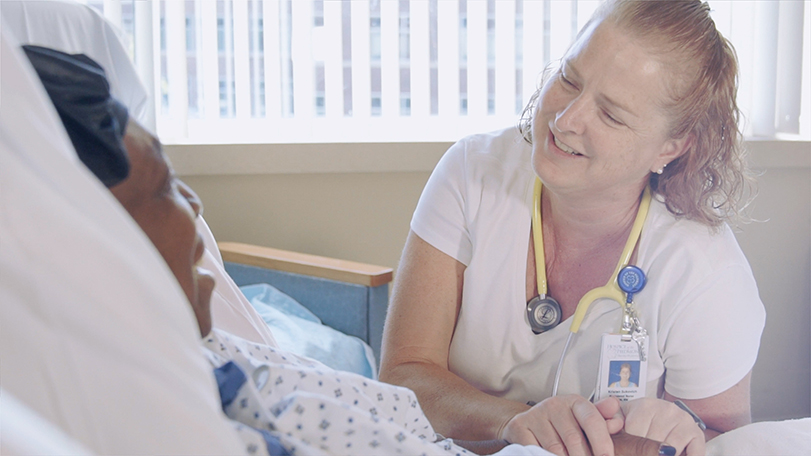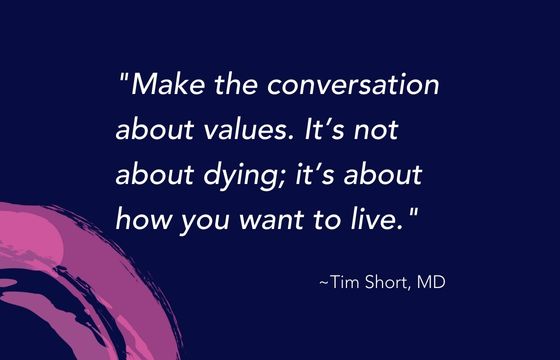Among all the nursing specialties, hospice (many people think) can be the most emotionally taxing. The skilled and compassionate impact of hospice nurses can be seen throughout every hospice organization, from the early stages of the admissions process to the final steps of a patient’s end-of-life journey.
Understanding the role nurses play in the hospice care team and in many of the activities that take place each day allows us to gain a better understanding of the holistic care hospice provides for patients, their caregivers, and their families.
How Hospice Nurses Care for Patients
Hospice nurses are called upon to provide more than just physical care to their patients. A nurse’s calm and attentive presence, expert care, and unwavering compassion build a bond between patient and nurse that encourages comfort and peace throughout the end-of-life journey.
Hospice nurses provide direct care for patients. Providing hands-on, direct care for patients makes up a large part of a hospice nurse’s duties. This is especially true for case managers and visit nurses.
Nurses play a primary role in ensuring their patients are as pain-free and symptom-free as possible, whether they administer medications, provide ongoing wound care, or carefully document vital signs.
Hospice nurses provide emotional and spiritual support to their patients. As nurses and their patients get to know one another, and nurses are so intimately familiar with a patient’s end-of-life journey, a powerful emotional bond is formed.
As patients bond with their nurses, they tend to see their nurse as a trusted confidant. Whether it is treasured memories or deep-seated fears, patients reveal things to their nurse that they may not even entrust to their closest family members.
They can share in these beautiful moments of bonding and gain valuable information that they can use to help coordinate their patient’s care.
Hospice nurses provide psychosocial support to their patients. For some, the end-of-life journey can be especially lonely. It is especially important when no close friends or family members are with a patient during their last days. A hospice nurse’s compassionate nature and loving disposition offer patients a sense of belonging and connection.
Even though it may seem simple, the benefits of a strong social connection cannot be underestimated. During a routine visit, a simple act, like administering medication or having a quick cup of coffee, can help calm a patient’s anxiety and promote overall comfort.
Hospice nurses ensure their patients always have someone there when they need them most. A hospice’s guiding principle is that no one should pass away alone. This belief is supported by the practice of ensuring that at least one member of a patient’s care team is present during the patient’s final hours.
A hospice nurse is the member of the care team who is most likely to be present with the dying patient. A hospice nurse provides a loving, reassuring presence while giving comforting care that ensures the patient is as pain-free and comfortable as possible in these final hours.
Skilled, Compassionate, and Dedicated
The impact of nurses can be experienced across every aspect of a hospice organization’s operations and in the lives of the patients, caregivers, and families that they serve.
Though a demanding profession, for many hospice nurses, it is also a calling — a calling to be a compassionate, insightful, and uplifting presence for all those on the end-of-life journey. Even though it is taxing, it is life-affirming, too.
We are passionate about the people who help us provide care to patients throughout central and northern Virginia. Discover how you can become a coworker, be a volunteer, or make a difference with Hospice of the Piedmont by exploring the employment opportunities and benefits listed on our website.



